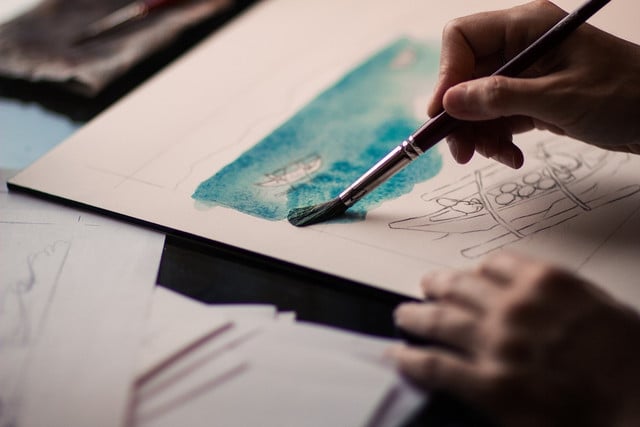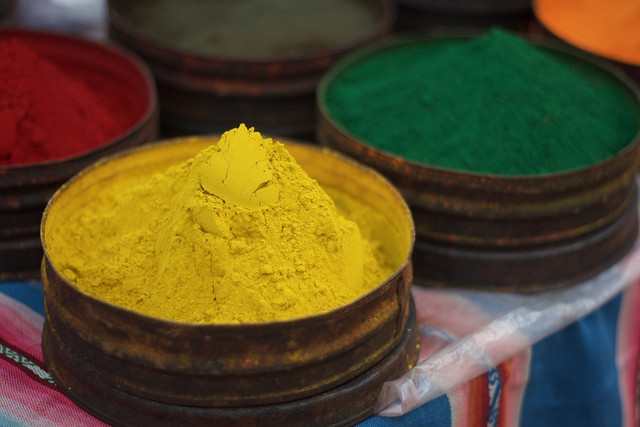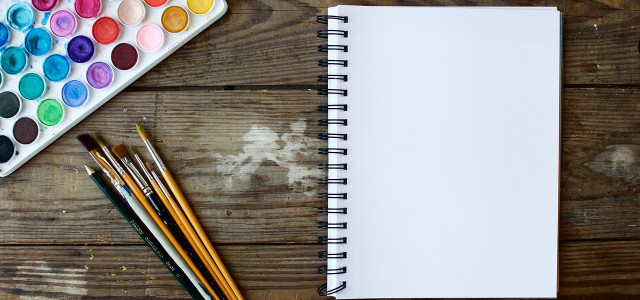Whether you’re curious, looking to understand pigments better, or simply want natural contents, we’ll show you how to make watercolor paint at home. The added bonus? It’s great fun for the kids.
Though more time-consuming than going to a shop, making your own watercolor paint is a great way to explore how different pigments work. Once you’ve learned the theory, you will be able to control the hue, value, and intensity of each color to create specific shades you may not be able to find using commercial paint sets.
You can’t always be sure exactly what is used in mass-produced watercolor paints. By making natural watercolor paint yourself, you can ensure quality, achieve better luminosity, and do away with fillers, chemical preservatives, heavy metals, petroleum-based pigments, and toxins. You can also choose a reusable pallette, such as one made of glass, to avoid plastic waste from store-bought paint sets.
How Are Watercolor Paints Made?

(Foto: CC0 / Pixabay / Pexels)
Watercolor paint is comprised of a pigment suspended in a binder made of gum arabic, water, and other additives to preserve and stabilize the paint. Because each watercolor manufacturer differs slightly in their methods, ingredients, or tools used, the characteristics of the paint vary from brand to brand. The same goes for artists who make their own paint, as they fine-tune their recipes over time.
The ingredients for homemade watercolors generally include:
Dry pigment
Choose your preferred pigment. Natural earth/mineral pigments, made from rocks and clay, are thought to be less toxic than pigments like cadmium or cobalt. However, it’s always important to protect your hands by wearing latex gloves and avoid breathing in the dust by using a face mask over your mouth and nose. Natural pigments come in a variety of colors – look for them at your local craft store. You can also purchase them through Natural Earth Paint, who give detailed information on their sources and methods.
Gum arabic
Extracted from the acacia tree, gum arabic is a water soluble gum that acts as the “glue” that binds the pigment. If you can’t find it pre-ground as powder, you can grind it yourself with a mortar and pestle.
Glycerin
Used often in skincare products, glycerin is a humectant and a plasticiser which can be bought at a pharmacy. It is used to prevent watercolors from cracking and crumbling when dry.
Optional preservatives:
Clove oil/ thyme oil
These oils act as natural antibacterial and antifungal agents that can prevent the paint from growing mold.
How to Make Watercolor Paint At Home



(Foto: CC0 / Pixabay / imalabstudio)
Materials:
- Bowl
- Stirrer
- Glass bottle
- Pipette
- Palette knife
- Glass palette
- Glass muller
- One empty watercolor paint box
Ingredients:
- 1 cup hot water
- 1/2 cup gum arabic powder
- 1/5 cup glycerin
- 2 drops of clove/ thyme oil (optional)
- Natural pigment
How to Make Watercolor Paint:
1. Dissolve the gum arabic powder into the hot water, mix it with the glycerin and add the optional clove/ thyme oil.
2. Decant the mixture into a glass bottle and prepare a pipette.
3. Using a palette knife, add the natural pigment to the glass palette and make a well in the centre. Add some of the solution with a pipette and mix.
4. Use the glass muller in circular motion to grind down the pigment as finely as possible, adding more solution if needed.
5. Scrape the watercolor paint from the palette and add to the watercolor paint box.
Read on:
- Potato Printing: How to Make and Use Potato Stamps
- Homemade Finger Paint: Non-Toxic Paint for Kids
- How to Write a Journal and Make it a Habit: Benefits of Journal Writing
Do you like this post?






